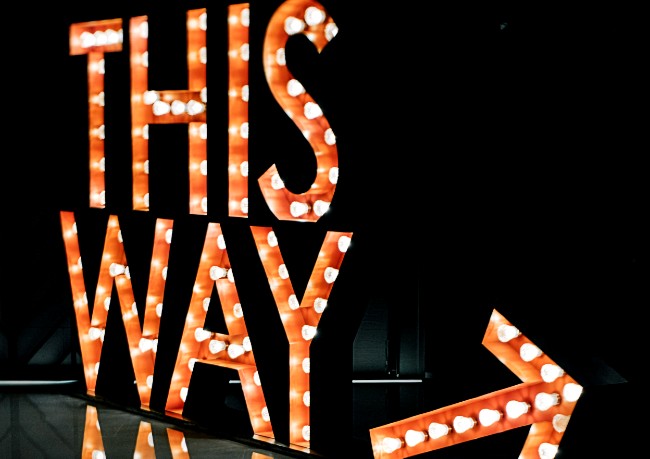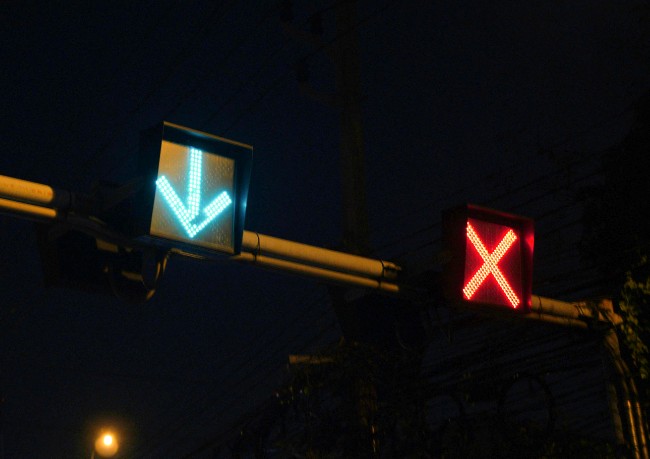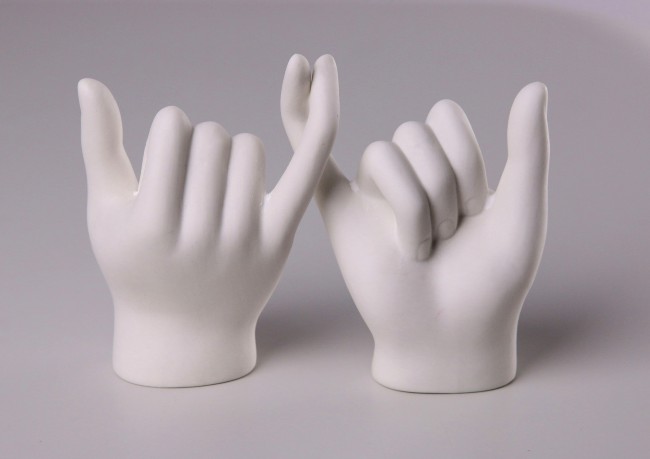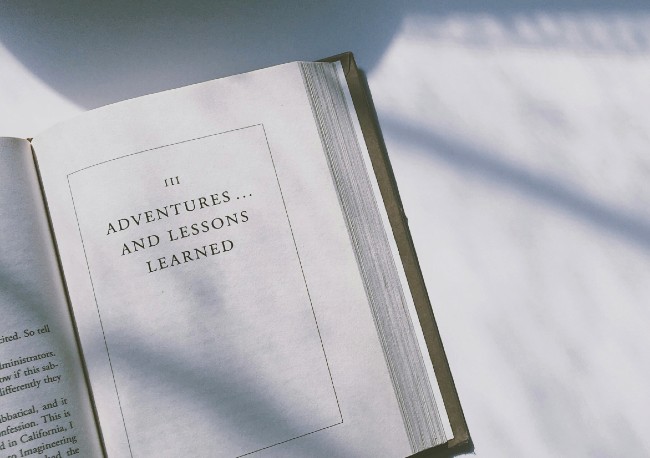Careershifters blog
“The whole problem with the world is that fools and fanatics are so certain of themselves and wiser people so full of doubts.” – Bertrand Russell
You know you want to make a career change. That much is clear.
But everything else? Blurry, confusing, and more than anything else – risky.
Risky from the outside, sure; the financial impact, a volatile job market, the judgments and opinions of others… but before all that, risky on the inside.
Because somewhere along the way, you’ve lost trust in yourself.
You didn’t feel it happen, but you can feel it now: you are no longer someone whose thoughts and feelings and opinions you can rely on.
You find yourself thinking:
“I don’t know who I am any more.”
“I’m so scared of getting it wrong again.”
“Nothing feels reliable.”
“I can’t trust myself to do the right thing.”
And it’s perfectly understandable. When you’ve…
- Spent months or even years in a career that isn’t aligned with who you are
- Made decisions that you now feel were the wrong ones
- Gaslit yourself into believing that you should be happy in a career that drains you
- Distanced yourself from your own values in order to meet external expectations
- Stopped doing things that light you up
- Stayed in environments that batter your confidence and self-esteem
…it can feel almost impossible to make small decisions, let alone choices that can impact something as vital as your career.
And from this place of disconnection and doubt, you’re paralysed.
It doesn’t matter how badly you want to shift and find something more fulfilling.
You can’t move.
The symptoms of self-doubt are insidious and powerful
They’re easy to miss until you’re deep in the swamp.
Career changers I work with in this state rarely notice the individual symptoms at play.
Instead, they come to me with a sweeping sensation of disconnection and disorientation; a generalised bewilderment that leaves them reluctant, hesitant, and disempowered.
So let’s break down the signs, one by one. Which do you recognise in yourself?
1. You overanalyse every option to the point of paralysis
It’s not that you don’t have any idea of what you might want to do.
It’s just that every idea feels treacherous.
You notice something you’re drawn to, you feel a surge of excitement… and just as quickly the doubts rush in.
Are you actually drawn to this idea, or are you just latching on to it because it’s nearby?
Do you really like that option, or are you simply lacking the imagination to come up with anything better?
Is this truly exciting, or are you being flighty again?
Do you keep thinking about this idea because it really suits you, or have you only grabbed on to it because it’s novel and new?
Every idea, every spark of hope, every subtle tug in one direction or another becomes a potential threat to be suspiciously examined. Moments of excitement elicit low-level panic, and the fear of “getting it wrong again” sullies every glimmer of joy.
You’re terrified of taking a wrong step; of jumping out of the frying pan and into the fire.
So instead you make lists, you weigh up pros and cons, you follow imaginary courses of action down hypothetical pathways that inevitably end in disaster, and all the while the time ticks away in the background; days; weeks; months; years…
2. You constantly seek reassurance from others

There’s an event happening locally that looks interesting.
You do something at work that you realise you’re really good at, and it sets your mind down a path about potential careers that could incorporate that skill.
Someone recommends a friend-of-a-friend to speak to about the business they set up.
But before you book the ticket, or explore the career path, or make the phone call, you check in with your partner, your friends, your family…
“What do you think?”
“Does this make sense?”
“Should I?”
Even low-risk, simple decisions feel big and wobbly.
And while you might have a gut-level feeling about an idea, you still offer it up to others to be validated before you choose.
You don’t feel you can rely on what your own thoughts and responses are telling you, so you turn to other people to guide you instead – and the slightest sign of doubt from someone else can shake you to your core.
3. You examine other people like science experiments

She looks like she’s happy and knows what she’s doing.
He sounds certain of what he’s saying.
Maybe you want what she wants? It’s clearly working for her. Maybe you think what he thinks? It makes sense, the way he explains it.
Your sense of your own needs and desires is muffled and shaky. You’ve lost your sense of intrinsic identity – so you catch yourself constantly looking for external examples you could mimic, instead.
Perhaps if you just do what they’re doing, then you’ll be happy like they are…?
But deep down, you know that’s part of what got you here in the first place; following someone else’s path.
So you flip-flop, trying to emulate those around you who seem to have it all figured out, while at the same time feeling wary and afraid of what might happen if you follow their lead.
4. You feel like you need permission – or a push – to change

If only your company announced a round of redundancies or layoffs.
If only you received some kind of unmistakable sign from the universe.
If only the choice was taken out of your hands.
You find yourself on the cusp of taking action regularly; a swell of emotion and frustration surges through your body, and you’re suddenly flooded with conviction… but somehow the sensation never quite translates into anything real.
Instead, you wait for something to move for you; to make your next step (whatever that might be) the only option, rather than an active choice.
A hallmark of the loss of self-trust is the deflection of responsibility.
How can you take your future firmly into your own hands, when those hands feel so unreliable?
At least if it’s someone else’s decision, you won’t have to bear the blame of getting it wrong.
5. You ruminate over past choices

What would life have been like if you’d taken a different path?
Were there signs that you missed that this wasn’t the right thing to do?
Shouldn’t you have known better? Where did you go wrong?
You go over and over your perceived ‘failings’ inside your head; beating yourself up for having made the choices you did, and trying to find the source of your missteps so you can avoid them in the future.
And every time you do, you feel a little worse about yourself.
Because not only are you practising chronic self-criticism (which understandably makes you feel worse, and more wary of yourself), you’re looking backward instead of forward.
You’re focused on the past, while you head (inevitably) into the future. And as long as you’re gazing into the rear view mirror, nobody’s driving the car…
Rebuilding self-trust is a process of practices
It took you a long time to get to this point, didn’t it?
An extended period spent repeatedly undermining yourself; over and over again.
Going to work each day and pretending you’re not feeling how you’re feeling – over and over again.
Lying in bed each night telling yourself that it’s probably your fault; it’s an attitude problem; you should be grateful for what you have – over and over again.
Ignoring (or actively suppressing) the physical signs of discomfort and distress in your body – over and over again.
Without knowing it, you’ve developed a sturdy and long-standing practice of fearfulness and disconnection.
So unravelling that work and rebuilding a relationship with yourself will take practice, too.
1. Get physical

“There is more wisdom in your body than in your deepest philosophy.”
– Friedrich Nietzsche
You haven’t lost trust in yourself because you’re stupid.
You’re behaving in a perfectly logical, rational and predictable way, based on the knowledge that you have, in fact, betrayed yourself.
Not by making a career decision that turned out to be not-right-for-you – that’s not the issue.
The betrayal came afterward; the time spent lying to yourself; pretending things were OK; steamrolling the feelings that told you you were in the wrong place.
It’s surprisingly easy to convince yourself of falsehoods, isn’t it? Unsettlingly simple to construct stories and lies and then believe them, inside your head.
Many of us have been trained to ignore our physical experience of the world. We seem to exist from the eyebrows up, in the realm of theory, concepts and ideas.
And we know that there, above our eyebrows, is a dangerous blend of truth and fiction. There are our hopes and our dreams; our good sense and logic, and jumbled up amongst all that good stuff is also a lot of thorny junk: our limiting beliefs; our fearful narratives and all the lies we’ve woven for ourselves over the years.
No wonder we don’t want to go up there into the attic. It’s full of booby traps.
But the body doesn’t lie.
So the body is where we can begin.
Rational thought aside, what does your body tell you about what feels right? What does your body do when you’re doing something that’s aligned with your values? What sensations show up when you’re engaging with something or someone that you know you love? What about when you’re doing a task at work that makes the time drag?
What happens to your shoulders; your belly; your breath? Is your jaw relaxed, or are your back teeth clamped together? How close are your shoulders to your ears? Are you breathing freely, or is your belly tight and your breaths shallow? Are your legs still and your feet grounded, or are they tapping and fidgeting under the table?
As you start to connect physical signs with emotional states, you’ll then be able to start using your body as a guide for moments when you need to make a decision.
Imagine one option, and notice what your body does (remembering the signs may be subtle). Then imagine the other, and notice what shows up physically.
Your mind might feel like a risky and confusing place at the moment. But your body is always reliable.
Start from there.
2. Keep your promises

“Act as if what you do makes a difference. It does.”
— William James
Earning your own trust is not dissimilar to earning that of someone else.
Reliability; integrity; consistency – these are all vital hallmarks of a trustworthy person.
And often, we are all those things for other people. But when it comes to ourselves, we behave unrecognisably.
We flake on our commitments; put ourselves in unpleasant and even risky situations; talk about ourselves in ways that are shocking and demeaning. We let ourselves down, over and over again.
“It’s only me”, we say.
No more.
Instead, set yourself a challenge: maintain the same standards with yourself that you’d maintain with anyone else.
If you say you’re going to take the weekend off, keep your promise. Take the weekend off.
If you decide you’re going to attend that event next week, show up. Even if you don’t feel like it on the night.
If you promise yourself you’re going to have that conversation with your boss, keep your promise. Book in the meeting.
If you break a promise, make it up to yourself by acknowledging the mistake. Take responsibility, without blame or shame. And then try again.
The best way to regain a solid, unshakeable trust in yourself is to earn it.
3. Do small things that scare you

“To dare is to lose one’s footing momentarily. To not dare is to lose oneself.”
— Søren Kierkegaard
A concept that I’ve kept close to my heart for many years is this:
Confidence is nothing more than the memory of success.
That goes for confidence in your skills; in your ability to make friends; in making a great poached egg.
And the same applies for building confidence in your sense of self.
So start creating a bank of ‘memories of success’ in your decision-making and creative adventure.
Practise small, low-stakes decisions; things that feel just a little nerve-tingling, but won’t hit you too hard if they take an unexpected turn.
Grab a career idea you’ve been trash-talking to yourself for a while, and go to an event that’s connected to it – without telling anyone you’re doing it or seeking their opinion. Create a memory of doing something because you think it’s a good idea, regardless of what anyone else thinks.
Introduce yourself to someone in your community who has a job you’re intrigued by, and ask them to tell you about what they do. Create a memory of following your curiosity and making a friend along the way.
Add something new to your daily routine that you’ve chosen purely for its frivolity and delight. Create a memory of noticing what feels good, and prioritising it.
Learn that you can make good decisions, and that when the outcome of those decisions isn’t what you’d hoped, you’re still OK.
4. Embrace the ‘mistakes’ you’ve made as valuable lessons

“Wholeness does not mean perfection: it means embracing brokenness as an integral part of life.”
– Parker Palmer
What’s a moment from your life when you feel as though you made a wrong turn?
One you look back at and chew over; wish you’d done something differently; berate yourself for ‘messing up’?
Maybe it’s choosing the job you’re in now, even though you had a feeling from the start that it wasn’t quite right.
Write a letter to the version of yourself that made that move; and write it in the second person ‘you’ form, from the ‘today’ version of you.
- Start by setting the scene. What was going on for you at that point in your life? Acknowledge the experience your past self was having at the time.
- Then, describe the reasons you had for making the choice you did. In what way were you doing the best you could with the information you had at the time? What were you seeking? What was most important to you at that moment? What did you need that this choice gave you?
- Share with your past self what has happened since they made that choice; the good things and the things that feel uncomfortable. Where are you now, and what has emerged in the in-between?
- Finally, tell your past self the valuable lessons you’ve learned from their choice. What wisdom and insight have you gained from this wrong turn?
When you take the time to look at your past with clear-eyed compassion, you’ll start to see: those ‘mistakes’ may not have been mistakes after all.
They were chapters in a story that contained important lessons for the book of your life.
5. Find your footholds

“The little things? The little moments? They aren’t little.”
– Jon Kabat-Zinn
The cardinal directions are solid and unchanging.
Even when we’re far out at sea in the dark, North, South, East and West remain, steady and true.
And when you’re feeling lost and uncertain, there’s little as powerful and reassuring as a couple of fundamental guideposts that you can rely on.
Basic truths that you can hold on to in the dark:
“I don’t know much for sure right now, but I do know this.”
So start to map out a few for yourself.
Literally map them out; begin a record of the things you know about yourself that you can rely on, no matter how few and far-between they may be right now.
There’s a lot you don’t know, but what one or two things do you know about what matters to you?
What are your values; the things that are important to you in your life as a whole?
What are a few activities or environments that light you up?
These things don’t have to be lofty, or fancily-worded – you don’t even need to be 100% certain of them. 60% is good enough to roll with.
Your list might start…
- Three things that matter to me a lot are: respect, stability, and community.
- I lose all sense of time when I’m focused on something detailed and complex.
- I admire people who do a few things well.
- My brain works best when my body is moving.
Keep a record of the things you know to be true, in black-and-white.
Watch yourself take some sturdy shape on paper, if nowhere else (for now).
Self-trust isn’t about knowing you’ll get everything right
It’s about knowing that you can face challenges and be OK, even if you make mistakes at times.
It’s about taking actions that allow you to look at yourself in the mirror with respect, regardless of what other people may think or feel.
It’s about cultivating a relationship with yourself rooted in compassion, integrity, and deep listening.
After all, your relationship with yourself is the longest relationship you’ll ever have. And like all relationships, there will be highs and lows, failures of communication, apologies to be made and repair work to be done.
The fact that you’ve noticed where you’re at is a huge step in the right direction.
And now, all there is to do is enjoy reconnecting with the most important person in your world.
What has losing trust in yourself been like for you? Share your experiences in the comments below.
Source link
Natasha Stanley
#SelfDoubt #Keeping #Stuck
